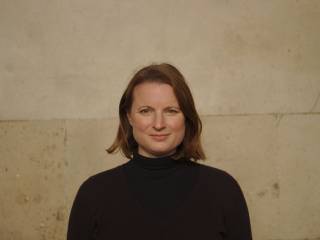
I first studied Psychology but what I enjoyed most at university was the statistics lecture. So I subsequently enrolled in an MSc course in Biometry. For my PhD at Cambridge, I investigated the genetic susceptibility to gynaecological cancers. During a postdoctoral position at the Wellcome Sanger Institute, I developed a strong interest in genetic research in diverse populations.
Since 2017, I lead a group at University College London to understand the interplay of genetic and environmental factors in the development of depression and other complex traits. The aim is to share the benefits of this research more equally across ethnic groups and global regions.
Fostering equality, diversity and inclusion is at the centre of all my different roles.
Research: Genetic research has a huge Eurocentric bias. The aim of my research is to illuminate the genetic and environmental risk factors for complex diseases by leveraging the unique characteristics of different populations. Increased diversity in research is crucial to reduce national and global health inequalities.
Public engagement: I try to contribute to the public debate about the lack of diversity in genetic research by giving interviews and writing about this in general news outlets.
Local engagement: I have launched a cross-departmental forum for UCL researchers in genetic epidemiology. This provides a support group for early career researchers and a place to hear about and discuss science. The community is extremely supportive and has provided a social forum during the Covid-19 pandemic. Together with Prof. Angelica Ronald, Birkbeck University, I have founded the London Genetics Network (LGN). The aims are to increase collaboration, foster diversity, develop resources for training and development, and to support early career researchers.
Team leadership: In several ways my team is very diverse. This is a unique asset when it comes to new ways of looking at complex problems and developing solutions. My priority for the team is to create an environment where people enjoy working.
Mentoring: Across my career, I have greatly benefitted from several wonderful mentors and sponsors. Mentoring the next generation of scientists is a way to pass this on and help shape a future research scene that is collaborative and diverse.
Departmental policy: I am a member of the DoP REED group and the GEE AS/EDI group to help us understand and improve EDI at the level of the department.
Personal development: Be comfortable being uncomfortable! We all have our own unique set of characteristics that provide either privilege or disadvantage. We also all have unconscious biases. Admitting privilege and seeing bias can be very uncomfortable. Therefore, many people look away when it comes to their role in maintaining the status quo. We need to tolerate some feeling of discomfort to change our behaviour and avoid contributing to inequality.
 Close
Close

